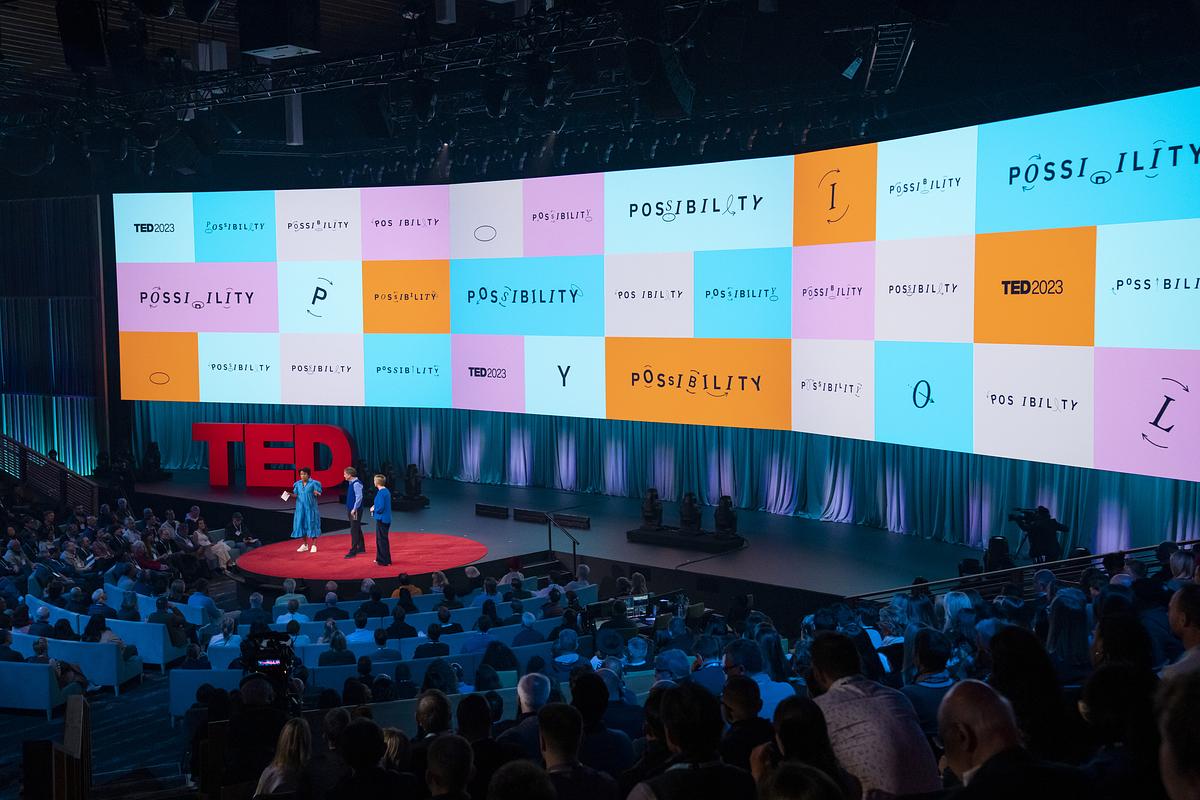
Hosts Whitney Pennington Rodgers, Chris Anderson, and Helen Walters open Session 1 of TED2023: Possibility on April 17, 2023 in Vancouver, BC, Canada. (Photo: Jasmina Tomic / TED)
It’s time for TED! In an eclectic and interdisciplinary opening session, artists, scientists, activists, entrepreneurs and more explored the breadth of transformative possibilities that lie ahead of us, from understanding animal communication to breakthroughs in artificial intelligence to the theory of the “adjacent possible.”
The event: Talks from Session 1 of TED2023: Possibility, hosted by TED’s Chris Anderson, Helen Walters and Whitney Pennington Rodgers
When and where: Monday, April 17, 2023, at the Vancouver Convention Centre in Vancouver, BC, Canada
Speakers: Angus Hervey, Stuart Kauffman, Jennifer Doudna, Golshifteh Farahani, Tom Graham, Karen Bakker, Wangechi Mutu, Benjamin Zander
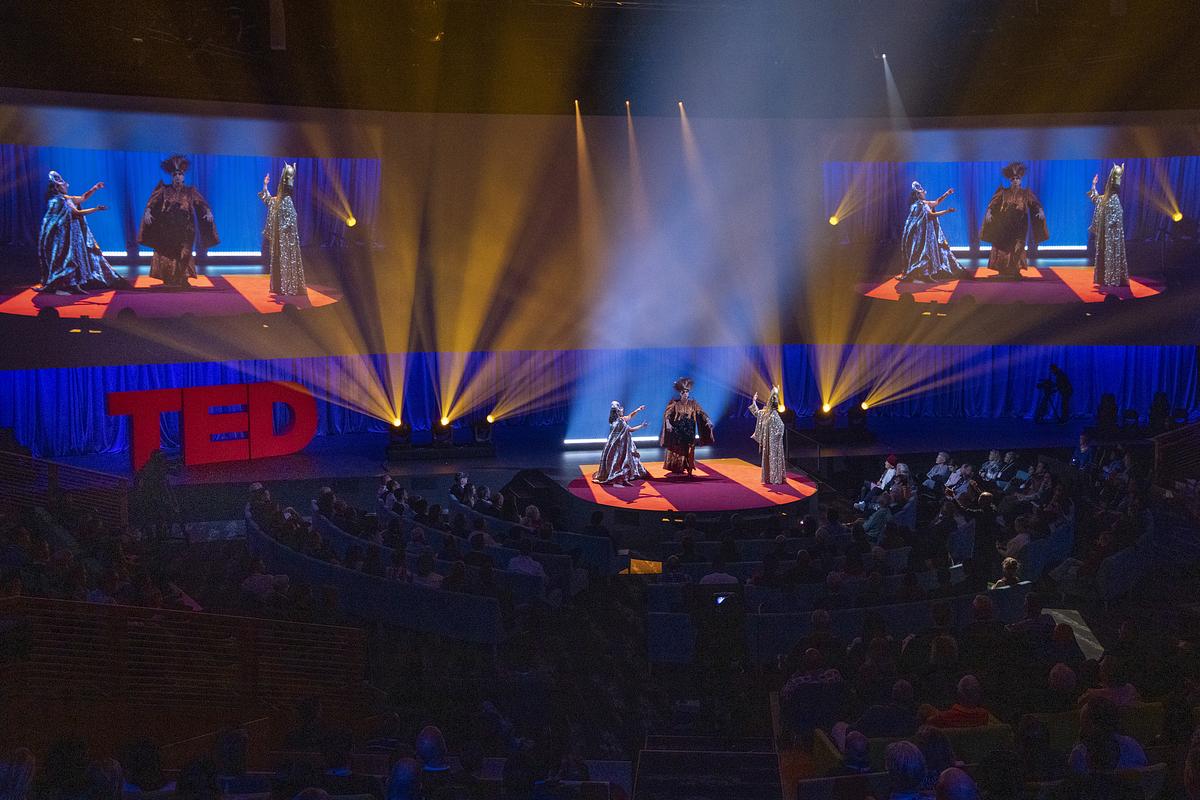
AI opera Song of the Ambassadors perform at Session 1 of TED2023: Possibility on April 17, 2023 in Vancouver, BC, Canada. (Photo: Gilberto Tadday / TED)
Opening performance: AI opera Song of the Ambassadors, created by Refik Anadol and K Allado-McDowell, kick off the session and beckon us into a new era of opera, co-created by humans and artificial intelligence, presenting a hymn to nature and existence.
The talks in brief:
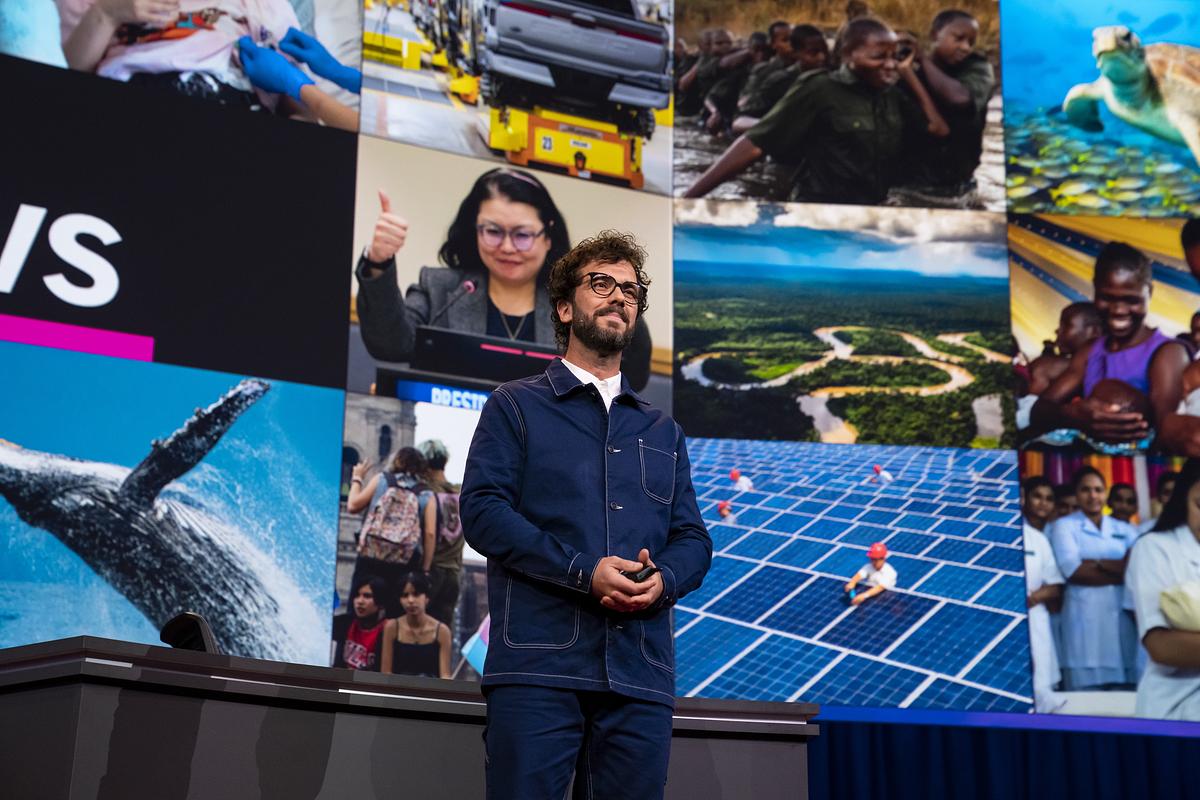
Journalist Angus Hervey speaks at Session 1 of TED2023: Possibility on April 17, 2023 in Vancouver, BC, Canada. (Photo: Gilberto Tadday / TED)
Why are we so good at reporting bad news and so bad at reporting good news? That’s a question journalist Angus Hervey spends a lot of time thinking about as the editor of Future Crunch, a newsletter that cuts through the usual doom and destruction we see on news channels and reports on stories of progress. Delivering a mock newscast from the TED stage, Hervey takes us on a whirlwind tour of the “good news” stories you might have missed from the past year — from the acceleration of the world’s clean energy transition to advancements in public health, human rights, astronomy and more — and clarifies why, if we want to change the story of humanity this century, we have to start changing the stories we tell ourselves.
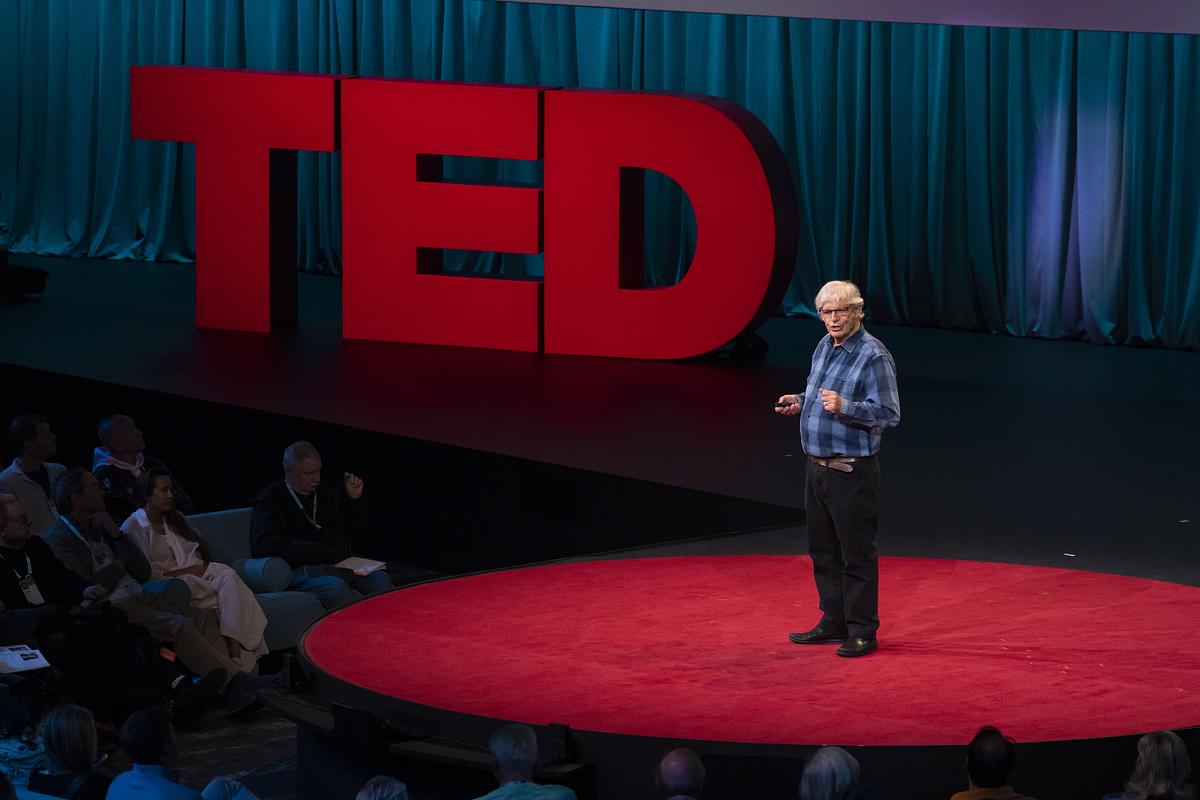
“Adjacent possible” originator Stuart Kauffman speaks at Session 1 of TED2023: Possibility on April 17, 2023 in Vancouver, BC, Canada. (Photo: Jasmina Tomic / TED)
Theoretical biologist Stuart Kauffman thinks we can explain the historical pattern of long periods of nothing happening followed by explosive growth (from the Cambrian explosion to hockey-stick growth of global GDP to the present computing revolution) through math — what he calls the theory of the “adjacent possible.” Tracing the arc of human history through the tools and technologies we’ve invented, Kauffman explains that humanity has so far used its creativity to bring about the Anthropocene and the destruction of the biosphere, and provides examples in soil regeneration for how we can reverse the damage and feed the world in the process.
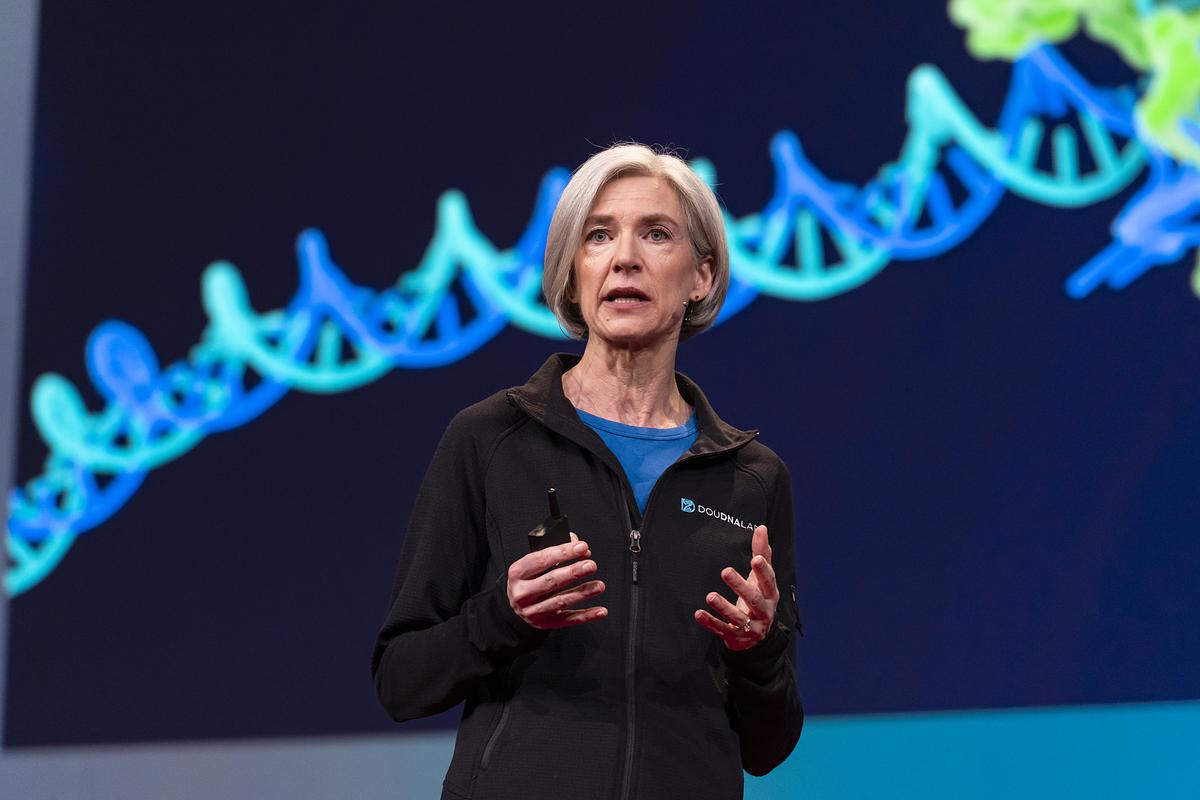
Nobel Laureate, biochemist and 2023 Audacious Project grantee Jennifer Doudna speaks at Session 1 of TED2023: Possibility on April 17, 2023 in Vancouver, BC, Canada. (Photo: Jasmina Tomic / TED)
A brave new world is upon us, and in its dawn emerges a collaboration between two breakthrough technologies — metagenomics and the Nobel Prize-winning technology CRISPR — to birth a new field of science: precision microbiome editing. Jennifer Doudna, co-inventor of CRISPR and a 2023 Audacious Project grantee with the Innovative Genomics Institute, details the deep potential of this new science and its focus on not just one organism but entire populations of organisms called microbiomes that exist in every living thing, influencing things like the development of asthma, obesity, diabetes and Alzheimer’s in the human body and methane production in cows. The opportunities to improve the future health of humanity and the planet are here now, and precision microbiome editing is the way forward, Doudna says.
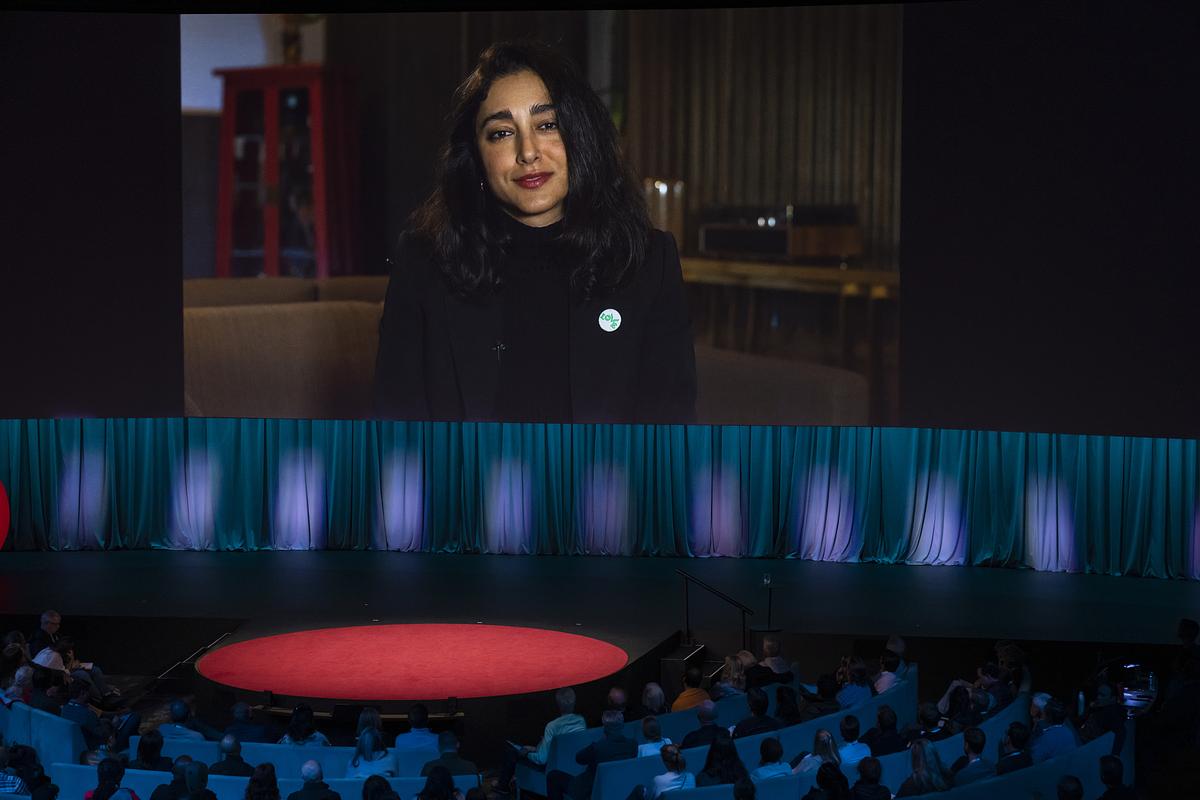
Live from Rome, actor, musician and activist Golshifteh Farahani speaks at Session 1 of TED2023: Possibility on April 17, 2023 in Vancouver, BC, Canada. (Photo: Jasmina Tomic / TED)
“I am the raised fist of young girls with their hair flowing in the wind,” says actor, musician and activist Golshifteh Farahani. In a moving tribute to individuals who have lost their lives during protests in response to the death of Mahsa Amini in her home country of Iran, Farahani draws connections between those fighting for freedom in Iran and the other places in the world where ignorance and fear separates instead of unites humanity.
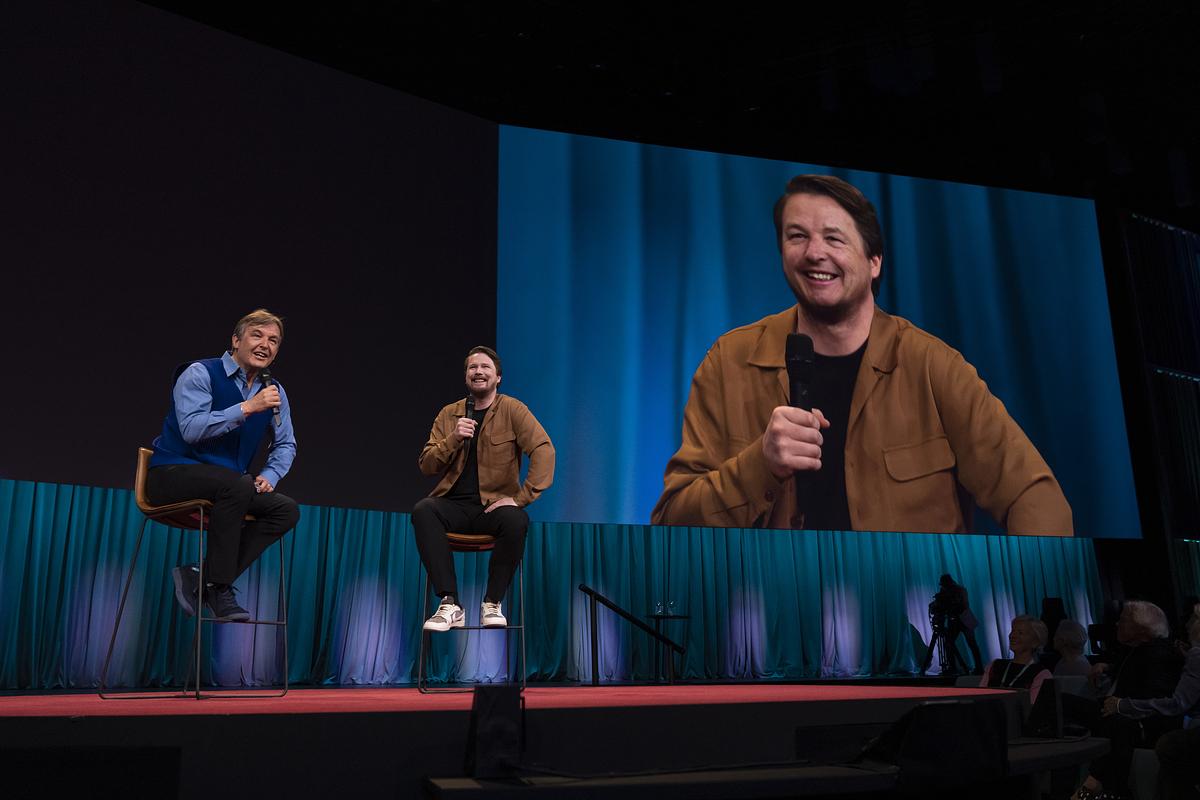
Head of TED Chris Anderson and AI developer Tom Graham — face-swapped live with Chris — speak at Session 1 of TED2023: Possibility on April 17, 2023 in Vancouver, BC, Canada. (Photo: Gilberto Tadday / TED)Tom Graham, AI developer
In conversation with head of TED Chris Anderson, AI developer Tom Graham explores how AI-generated content that looks and sounds exactly like the real world (known as “deepfakes”) will come to permeate our lives over the next decade. He offers a proof of concept directly from the stage: a startlingly realistic deepfake of Tom Cruise outside TED2023 in Vancouver, and then a real-time demo of Anderson’s face overlaid first on Graham’s head and then on TED community member Sunny Bates, seated in the first row of the TED Theater. Together they discuss the creative and educational potential of this technology — along with its risk for exploitation — and explain the new legal rights we’ll need to ensure we maintain control over our photorealistic AI avatars.
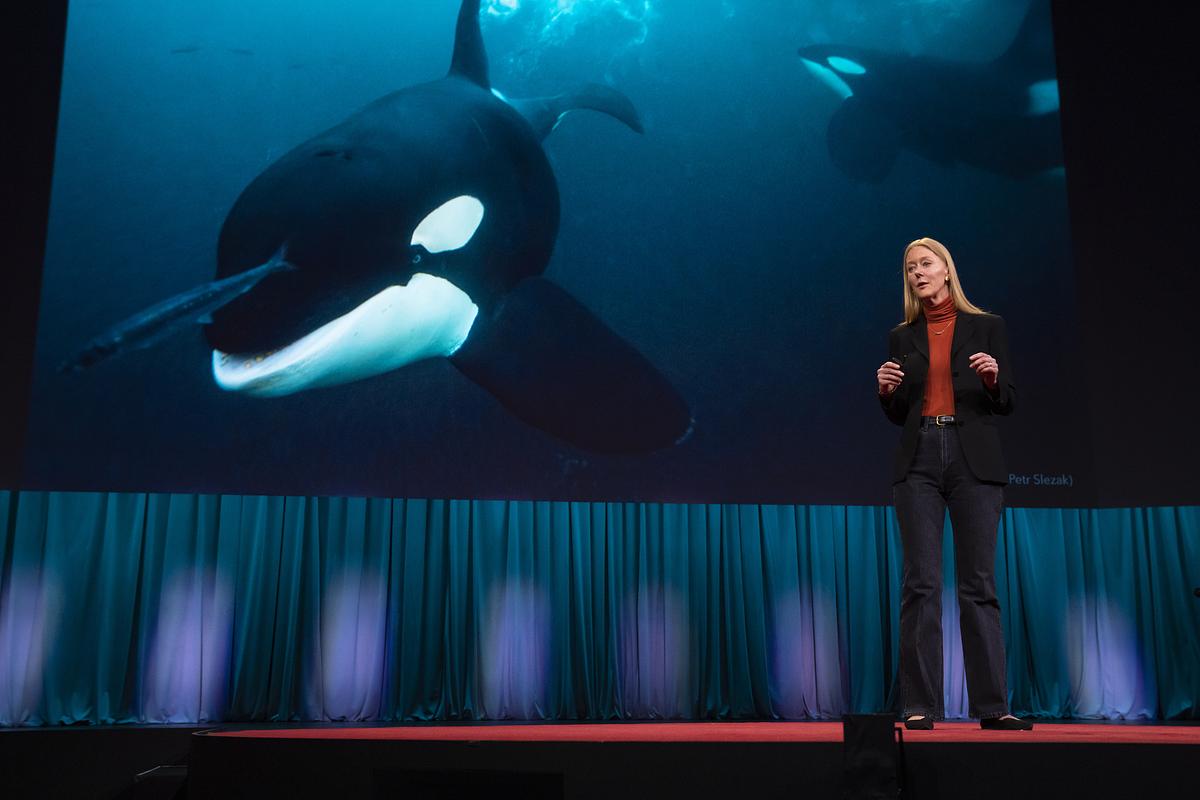
Conservation technology researcher Karen Bakker speaks at Session 1 of TED2023: Possibility on April 17, 2023 in Vancouver, BC, Canada. (Photo: Gilberto Tadday / TED)
Conservation technology researcher Karen Bakker uncovers how the animal kingdom communicates in ways as complex as our own human speech – from microscopic coral larvae listening for the sounds of their home reef to the varying dialects in the dictionary of elephants’ trumpeting. Much of nature’s acoustics are ultra- or infra-sonic, lying outside our natural ability to hear (consider a bat’s shrill speech or a hydrothermal vent’s deep hum), but technological breakthroughs are changing that, allowing us to tune into a world previously unheard. Scientists are even able to translate some variations of animal speech, while generative AI is able to imitate some of these sounds, allowing us to communicate with nature like never before – and bringing along some difficult challenges, too. “In nature, sound is everywhere and silence is an illusion,” Bakker says.
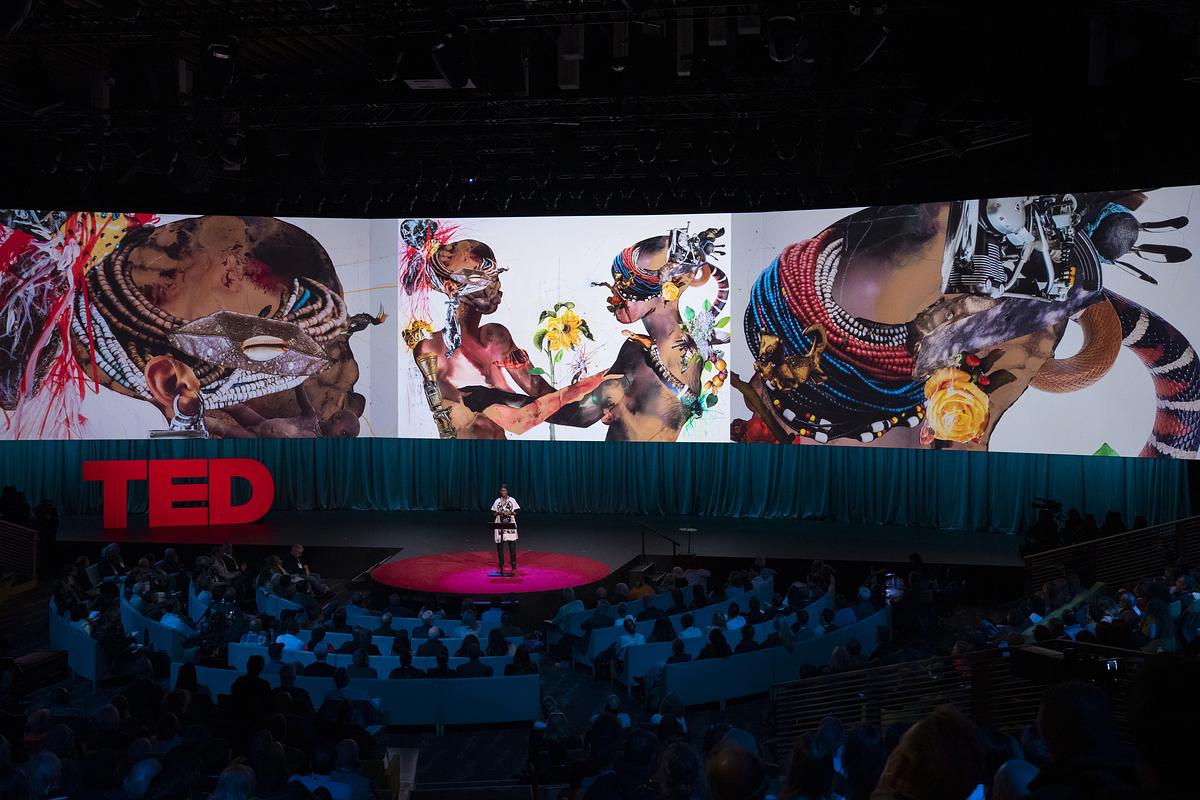
Visual artist Wangechi Mutu speaks at Session 1 of TED2023: Possibility on April 17, 2023 in Vancouver, BC, Canada. (Photo: Jasmina Tomic / TED)
“We’ve left messages for each other using art. Messages that travel across vast expanses of time and culture, reminding us of where we came from,” says visual artist Wangechi Mutu. From ancient carvings deep in the Sahara to her own chimeric art, Mutu traces evolving representations of divine femininity and the presence of women in African art. She shares her otherworldy sculptures that merge nature, history and lore, pointing to how art gives voice to those rendered invisible — and reminds us of the freedom found in creation.
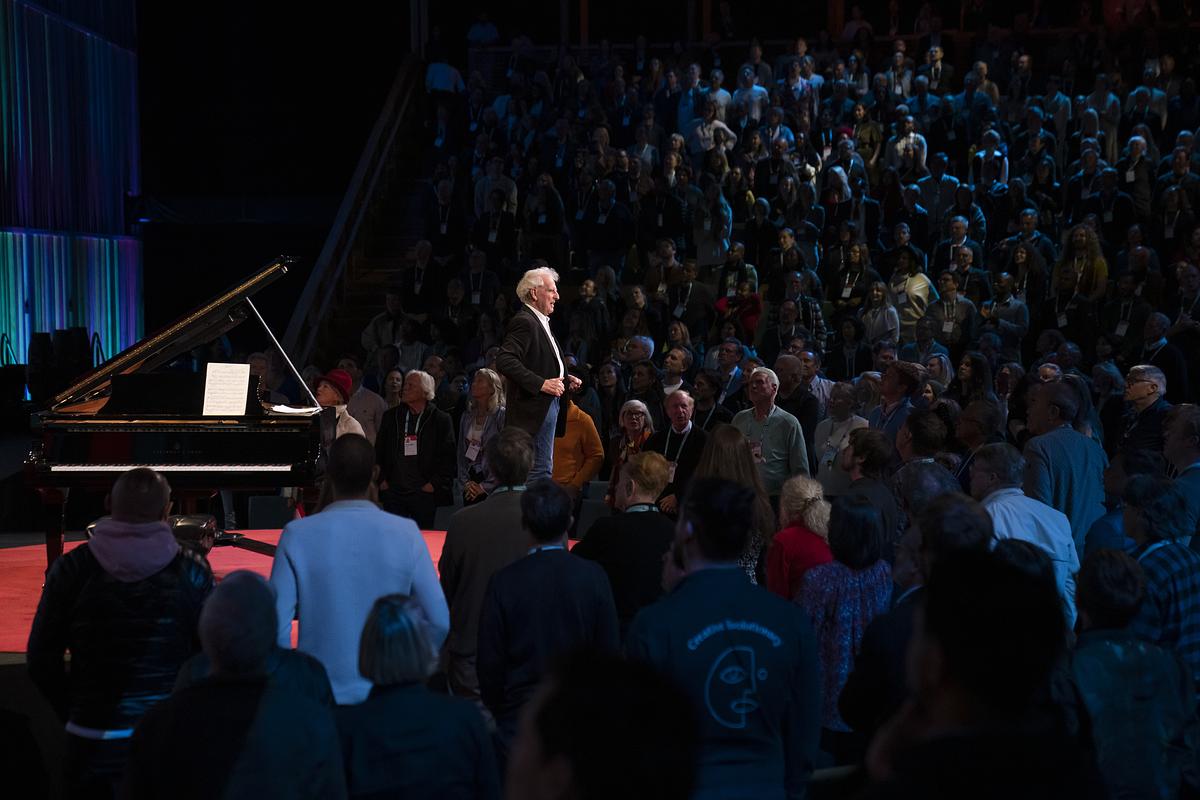
Conductor Benjamin Zander speaks at Session 1 of TED2023: Possibility on April 17, 2023 in Vancouver, BC, Canada. (Photo: Gilberto Tadday / TED)
In a rousing talk and piano performance to close out the opening session, legendary conductor Benjamin Zander (watch his 2008 TED Talk) explains his view on the difference between “positive thinking” and “possibility,” saying, “Positive thinking is a fraud, and possibility is a language of creation.” And he waxes lyrical about Beethoven, asking us to listen a little deeper to the very familiar “Moonlight Sonata” and inviting the audience to a sing-along (in German) of the original words to “Ode to Joy.”
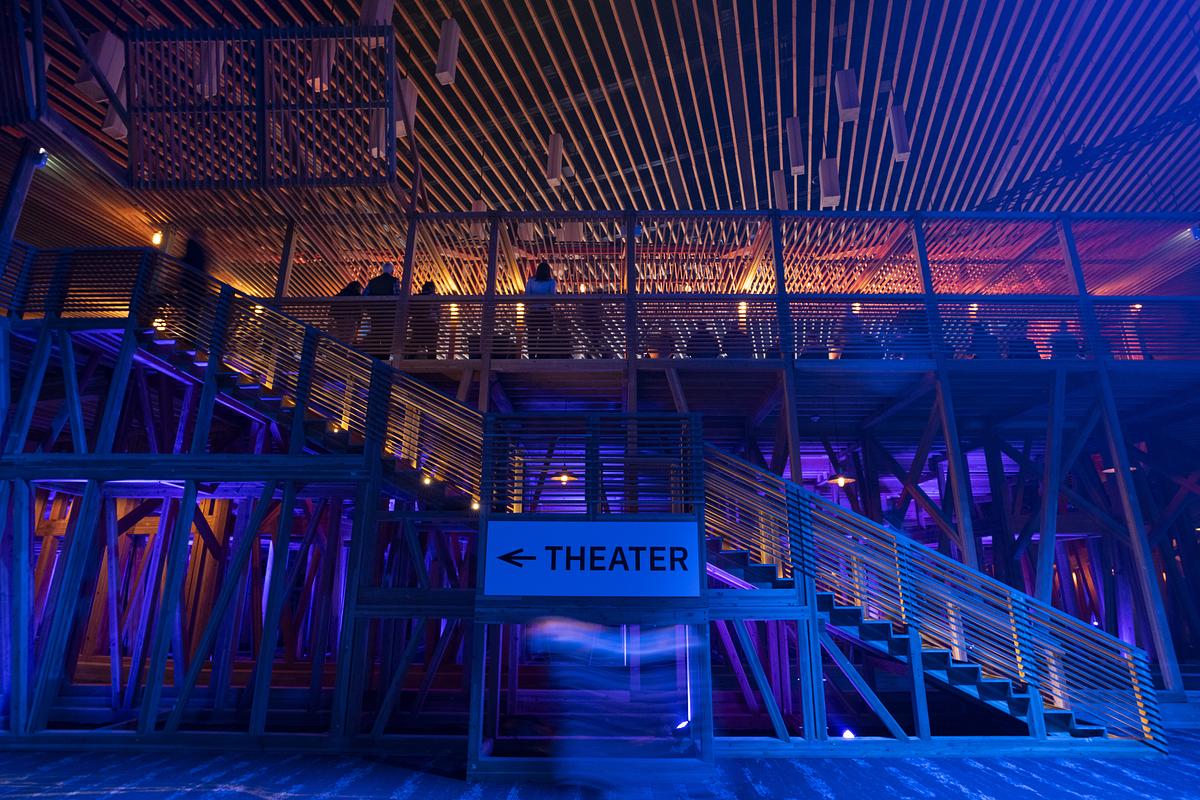
The entrance to the TED Theater at TED2023: Possibility in Vancouver, BC, Canada. (Photo: Ryan Lash / TED)